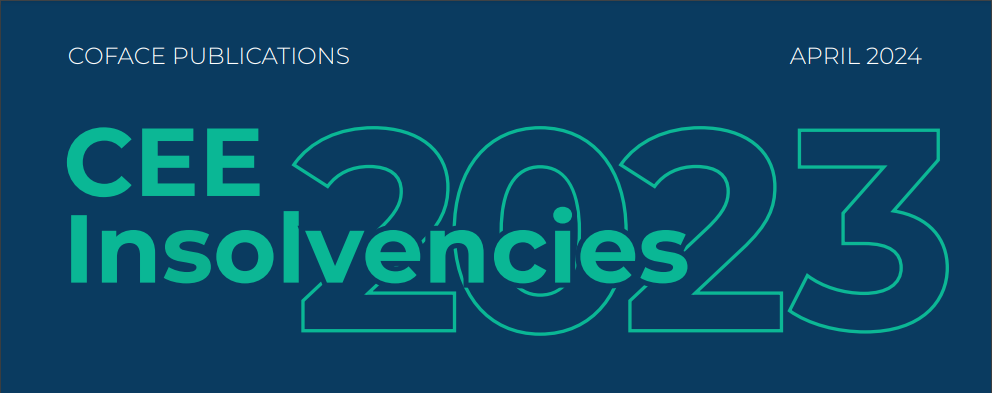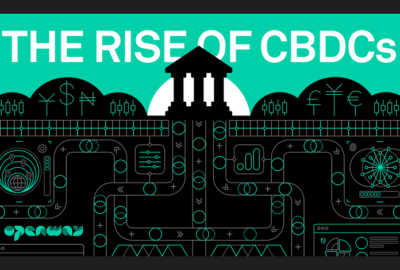European Banking Federation shares views on the digital euro, payment services and financial data access proposals

The European Banking Federation (EBF) today shared its reaction to three major digital finance proposals put forward by the European Commission: a legal framework for a digital euro, the Financial Data Access framework and the Revision of EU rules on payment services.
“Today’s proposals touch upon central issues that will significantly affect the future of European financial services. It is crucial to ensure that the European Commission’s vision on digital finance helps enable a competitive ecosystem with a level playing field for all, unlocking new opportunities for users while upholding their safety in complex digital environments,” said EBF CEO, Wim Mijs.
He continued: “The proposal for the digital euro outlines the framework and the legal basis for the European Central Bank’s (ECB) plans for a retail Central Bank Digital Currency (CBDC). It is an essential part of the thorough, democratic and public debate that is necessary for a project of this magnitude, with a potential widespread impact on society and the economy. Alongside the main features of a digital euro, it is important to discuss the broader questions about its added value, how it can best respond to current and future challenges of the European payments market, and how it can be developed jointly with the market.
At the same time, the proposed framework for financial data access needs to be carefully considered in terms of the data in scope, so as to make sure that it responds to actual user and market needs. There are steps in the right direction when it comes to ensuring fair competition between market participants with a fair distribution of value and risk.
Finally, the revision of EU rules on payment services should provide a stable basis for the future development of a successful open banking framework, and rules that enable the fight against the increasing online scams and fraud”.
A legal framework for a digital euro
Today’s proposal lays the ground for the issuance of a retail digital euro. The legislation should find a balance between defining the key characteristics of the digital euro with leaving enough room for the market to develop its distribution. Certainty and clarity on the modalities regarding the holding limits as well as compensation for intermediaries are also needed.
A retail digital euro could – if properly designed – support the strategic autonomy of Europe and ensure a monetary anchor role of the euro. However, to complement the European payments landscape, it must provide a clear added value and be future-proof by design.
It should be understood as a “raw material” that would be issued by the Eurosystem, allowing the industry to develop solutions and fully deploy its innovative potential to deliver competitive payment solutions to the European payments market through a true public-private partnership.
The design of a sustainable business model for the digital euro is vital. It is clear that the costs of building the infrastructure to enable the circulation of the digital euro, and its actual distribution cannot be borne by private actors alone. A harmonized framework of financial incentives should be set up where compensation mechanisms reflect the wider range of necessary actions to be taken by intermediaries.
In addition, to shield banks from the risk of deposit flight and to limit the negative impact on banks’ ability to finance the economy, it is important to set appropriate and firm limits in holdings and transactions.
Read the EBF’s vision on a digital euro ecosystem here.
The Financial Data Access framework
For data-driven innovation to unlock new opportunities for customers, it must be supported by a data-sharing ecosystem that ensures fair competition between market participants with a fair distribution of value and risk. The proposal presented today makes some steps in this direction, notably through including the possibility for financial incentives, but in other areas – such as the introduction of broad mandatory data access rights – the risks are not fully taken into account.
Data sharing should be based on customer and market needs. Introducing new, broad mandatory data access rights without careful cost-benefit analysis of each product or market, and without understanding where the real value for the customer lies, risks introducing further fragmentation in the financial sector when it comes to data sharing.
The possibility of cross-sectoral data sharing should be taken into account to leverage the potential that data from other sectors, with the customers’ permission, holds for developing new products, services and experiences in the financial sector.
We welcome that the proposal sets out key principles on how data could be shared, such as the compensation to make data accessible. Any compensation should reflect the wider range of necessary actions – collection, generation, structuring, preparing and sharing of data – not only the creation and maintenance of infrastructure.
The proposal also leaves room for market-driven initiatives to develop these principles further through data-sharing schemes, which can create a secure environment for data sharing with legal certainty for all actors. Yet feasible timelines are needed for the development of these initiatives.
The introduction of mandatory permission dashboards for customers needs to be carefully considered. Entities included in the scope require the flexibility to define and develop these services by using technologies that better fulfil specific needs.
Read EBF’s paper Open Finance: Towards a fit-for-market approach here.
Revision of EU rules on payment services
The proposed upgrade of EU payments rules provides some welcome updates and clarifications but does not go far enough in making the essential changes necessary to create a truly successful open banking framework and enable the market to fight scams and fraud in an increasingly complex environment.
Payment Services Regulation and Payment Services Directive 3 will be fundamentally important in ensuring a legislative framework for payments that is in line with market evolution, and fosters an innovative and competitive EU payments market, that needs to be characterised by a level playing field between all providers of payment services.
Fair distribution of value and risk is key in creating an ‘open banking’ framework that corrects the imbalances resulting from the approach taken in PSD2. The principle of compensation should be included in payments legislation too, to ensure alignment with open finance. A key lesson learnt from the PSD2 implementation is that a competitive ecosystem only works when there are benefits for all. The EBF calls to ensure that the reviewed open banking framework provides a stable basis for the future development of a successful open banking framework that at the same time limits the changes needed for implementation.
Finally, prevention of fraud and scams is of utmost importance to banks, with significant initiatives already undertaken on this front. The issue is increasingly important in a context where methods continuously evolve, with new ways to exploit human vulnerabilities and mislead customers. The reviewed legislation should consider this topic broadly, as scams occur outside the payment transaction itself and it is extremely challenging for banks to detect them. Bringing all actors in the relevant areas and in the payments chain such as telecom operators, internet platforms, and parties that participate in the user authentication or payment initiation under adequate and proportionate legal obligations for fraud prevention, detection and mitigation is crucial. The EBF stands ready to participate in further joint efforts with the public sector to enhance consumer awareness, essential in combating authorised push payment scams and fraud.
____________
The European Banking Federation is the voice of the European banking sector, bringing together 32 national banking associations in Europe that together represent a significant majority of all banking assets in Europe, with 3,500 banks – large and small, wholesale and retail, local and international – while employing approximately two million people. EBF members represent banks that make available loans to the European economy in excess of €20 trillion and that reliably handle more than 400 million payment transactions per day. Launched in 1960, the EBF is committed to a single market for financial services in the European Union and to supporting policies that foster economic growth.
Anders Olofsson – former Head of Payments Finastra
Banking 4.0 – „how was the experience for you”
„So many people are coming here to Bucharest, people that I see and interact on linkedin and now I get the change to meet them in person. It was like being to the Football World Cup but this was the World Cup on linkedin in payments and open banking.”
Many more interesting quotes in the video below:









